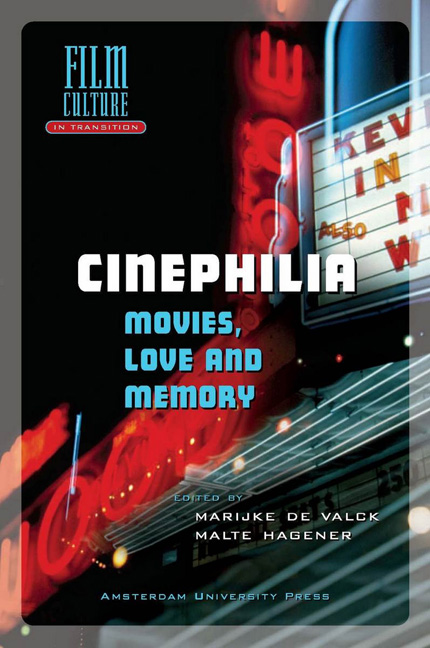Book contents
Dreams of Lost Time: A Study of Cinephilia and Time Realism in Bertolucci’s The Dreamers
Published online by Cambridge University Press: 25 January 2021
Summary
What do people do for love? Just about anything. And we all know how easy it is to fall in love. It is probably because of the mysterious nature of an act of love that makes it somehow irresistible. This is why using a phrase as clichéd as “falling in love with love” is not so inappropriate when we talk about “cinephilia” as a love for cinema. But truly, for us cinephiles, love for the cinema is not just an act of watching movies, but rather of living them, re-enacting particular scenes or lines that have changed forever our view of everything in our lives.
Many have tried to define and explain the phenomenon of cinephilia, the “crazy, obsessive” love for 24 frames-per-second of truth on screen. What power does cinema possess, what has it gained, and from where? Its unique mechanism of making a series of still images appear in real action/real time is one thing. But the more obvious nature of cinema that we find so mesmerizing is its endless abilities to tell stories within affordable and possible “time frames” for the audience. This transforming power of cinema that perfectly instantiates the mysteries of time – chronos, kairos, aion – is exactly the magic of cinema, the power that attracts, entertains and encourages the cinephilia.
Cinema does not only store time's physicality, if it has one (though many have argued that time can in no way be retrieved – Bergson with his theory of time as durée comes to mind). For the first time in history it also makes the flow of time visible, readable, and compatible with the temporal accessibility of human psyche. None of the previous time-storage media – literature, paintings, sculptures, photographs – possesses this ability, this power to visually regain and represent the “passage” of “lost” time in the way that the human mind manages temporality, if we follow Freud, according to whom the psyche reads time as fragments, opposing itself to the relentlessness of time's flow. For Freud, time itself is a violent force, and the mode of temporal discontinuity is the psyche's own protective configurative.
In our contemporary media context, however, the scheme of time lost and regained in cinema has gone beyond the mere matter of recording and representing time (in both the factual and fictional sense).
- Type
- Chapter
- Information
- CinephiliaMovies, Love and Memory, pp. 45 - 54Publisher: Amsterdam University PressPrint publication year: 2005



